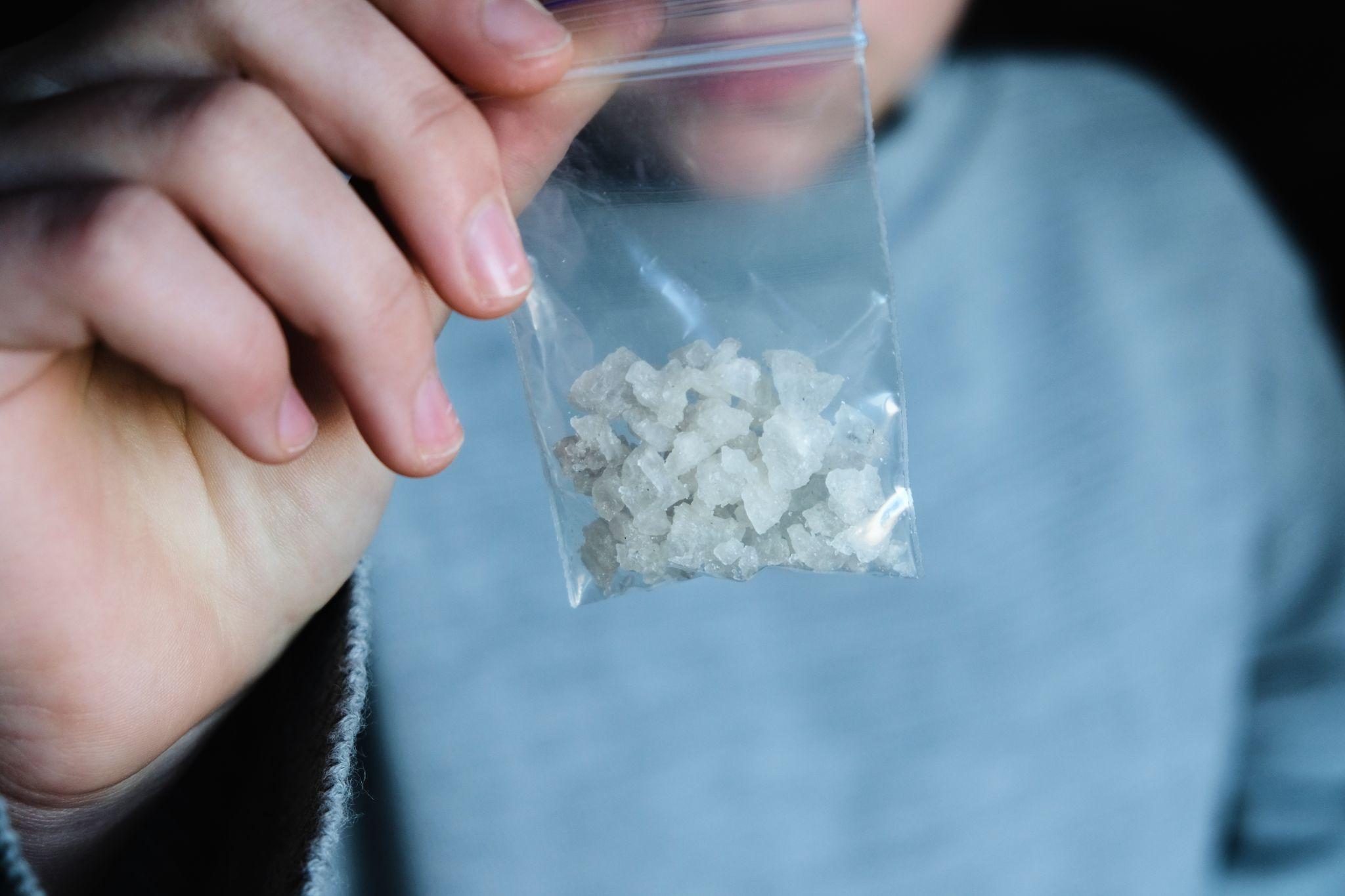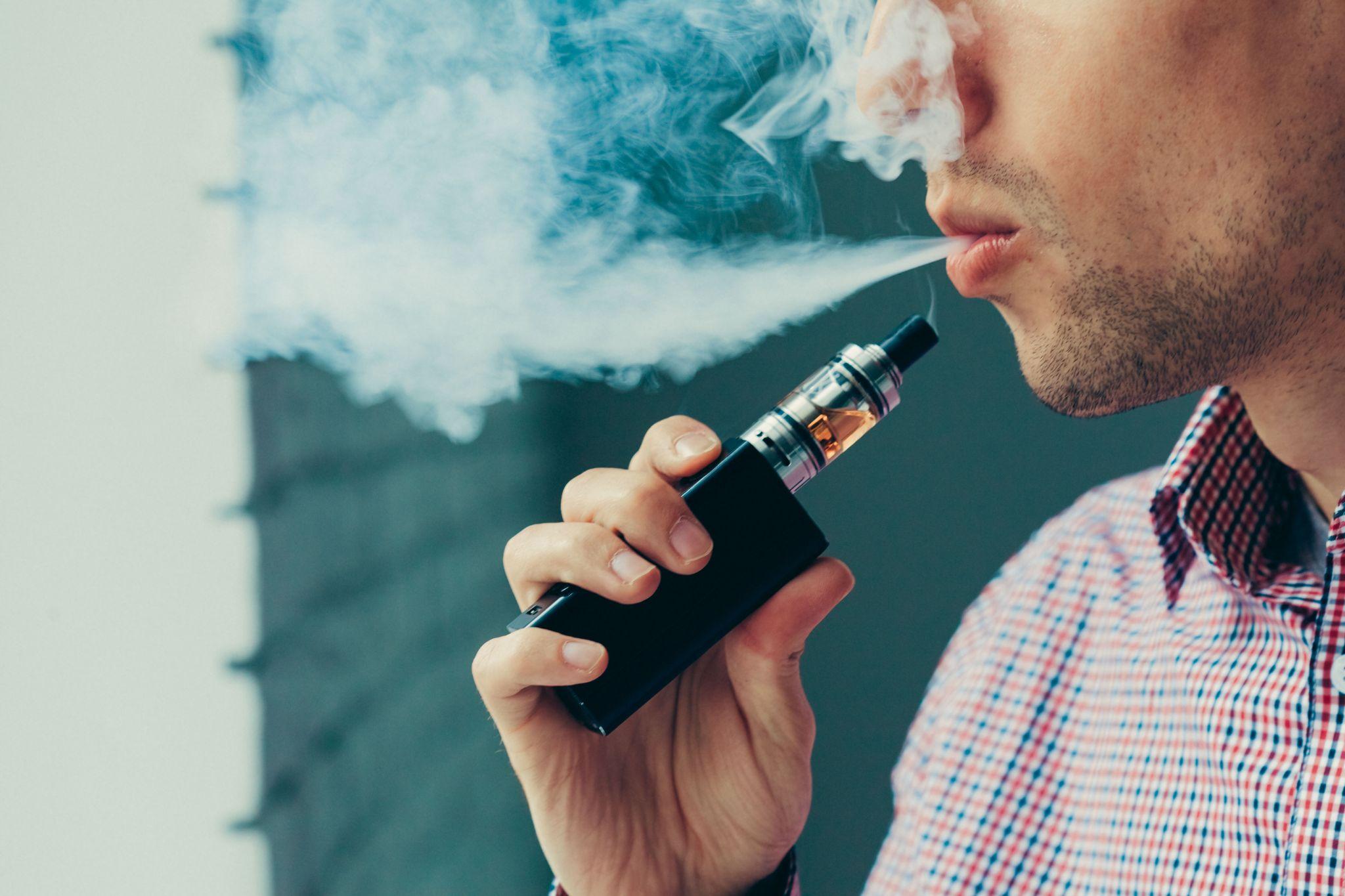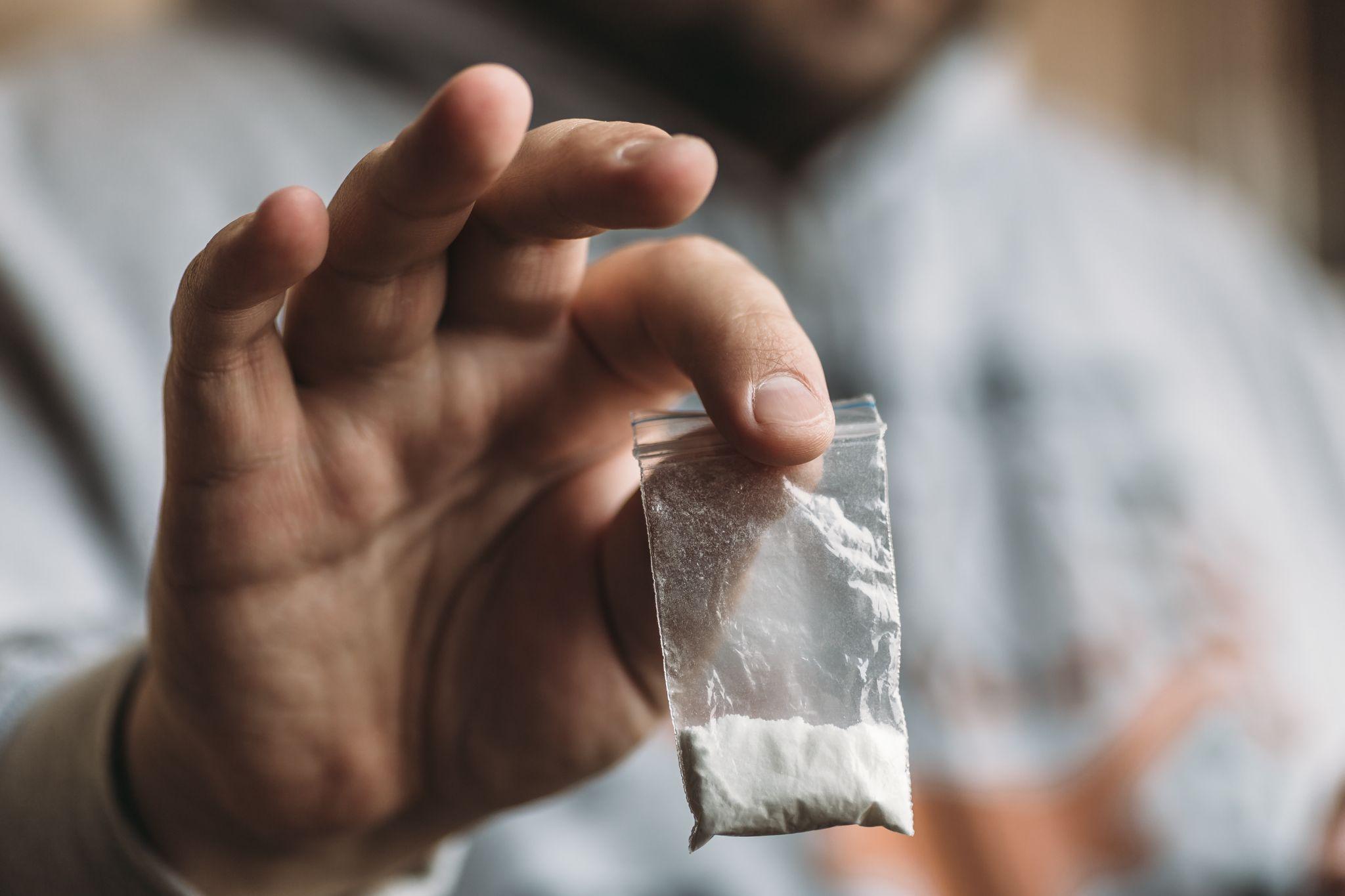
Our Addiction Resources
Navigating the world of addiction and recovery can be overwhelming. We’re here to provide clear, compassionate education and guidance. From practical advice for maintaining sobriety to informational guidance on the long-term effects of substance abuse, our content is a beacon of hope and understanding.
Our Team is Ready are ready to take your call
Call us Today!
or we can call you. Fill out form below
Our Blog

How Do You Know If Someone Is Using Meth?
Understanding and confronting addiction is a difficult journey, both for those experiencing it and their loved ones. Methamphetamine, also known as meth, is a highly addictive and strong stimulant affecting the central nervous system, leading to serious physical, psychological, and social consequences.
Recognizing the signs of meth use early can be an important step in seeking help and beginning the road to recovery. We’ll explore the key indicators of meth addiction below, offering guidance for those worried about a friend, family member, or anyone close to them.
Physical Signs
The physical signs of meth use are often the first indicators that become visible to others. One of the most immediate signs of meth use includes dilated pupils and rapid eye movement, a direct consequence of the drug’s stimulant properties.
Individuals using meth may also experience extreme weight loss in a very short period, primarily due to the drug’s appetite-suppressing effects. Another side effect is the development of dental problems, collectively known as “meth mouth,” where individuals suffer from bad breath, tooth decay, and gum disease due to chemical exposure and neglect of personal hygiene.
Skin sores are another common physical sign of meth abuse, resulting from the user’s hallucinations of insects crawling under their skin, leading to obsessive picking and open wounds.
Finally, meth use can cause an abnormal increase in body temperature, manifesting as excessive sweating even in cool conditions. These physical changes are often accompanied by a general decline in personal appearance and hygiene, as the addiction takes precedence over self-care.
Behavioral Signs
Behavioral changes in someone using meth can be varied and have long-term effects on their relationships and daily functioning. Increased energy and alertness are hallmark signs, with people who abuse meth often going for days without sleep, followed by periods of extreme exhaustion.
This hyperactivity can turn into paranoia or anxiety, with some users becoming aggressive or exhibiting violent behavior as their mental state deteriorates. A pronounced shift may occur in their social habits, where they withdraw from friends, family, and activities they once enjoyed, isolating themselves as they delve deeper into their addiction.
Moreover, meth users often show stark neglect of responsibilities, with noticeable declines in their performance at work or school and a disregard for household and personal duties. These behavioral shifts are destructive to the individual’s life and deeply affect their relationships with others, often leaving a trail of broken connections and trust.
Psychological Signs
The psychological effects of crystal meth use are profound, affecting the user’s mental health and altering their perception of reality. Users may experience severe mood swings, fluctuating between periods of euphoria and deep depression, making their emotional state highly unpredictable.
Long-term meth use can lead to hallucinations and delusions, where individuals might see or hear things that aren’t there, further detaching them from reality. These experiences can be terrifying, not only for the users but also for those around them.
Compulsive behaviors are another psychological sign of meth use, where individuals may engage in repetitive actions such as obsessively cleaning or disassembling and reassembling objects without any clear purpose. These behaviors can consume hours, further isolating the individual from social interactions and exacerbating their detachment from reality.
What to Do If You Suspect Someone Is Using Meth

Educate yourself. The first step in helping someone you suspect is using meth is to educate yourself about the drug, its effects, and the process of addiction and recovery. Understanding the physical and mental signs of meth use, as well as the challenges of overcoming addiction, will prepare you to offer informed support.
Many resources are available online, including articles, forums, videos, and literature from addiction recovery centers and health organizations. Gaining knowledge about methamphetamine addiction will also help you communicate more effectively with your loved one and with professionals when seeking help.
Have open communication. Having an honest conversation with the person you’re concerned about can be challenging but is crucial. Choose a time and place where you can speak privately and without interruptions. Approach the conversation with empathy, avoiding judgment or accusations.
Express your concerns using specific observations about how their physical and behavioral health has affected you and others around them. It’s important to listen to their perspective and understand that they may be in denial or reluctant to admit they have a problem. Offer your support and let them know you’re there to help them through their recovery journey.
Seek professional help. Encouraging the individual to seek professional help is critical. Research local addiction specialists, counselors, and treatment programs that have experience with methamphetamine addiction. Offer to help them make an appointment and accompany them if they wish.
It’s essential to recognize that the decision to seek help must ultimately come from them; however, providing information and options can make the process less daunting. In some cases, an intervention facilitated by a professional may be appropriate to help the individual realize the gravity of their situation and the need for treatment.
Find support groups. Support groups play a vital role in the recovery process, not just for the individual struggling with addiction but also for their loved ones. Groups such as Narcotics Anonymous for the individual and Nar-Anon for friends and family provide a supportive community where experiences, struggles, and successes can be shared.
These groups offer valuable insights, coping strategies, and a sense of not being alone in this journey. Participating in a support group can also help you better understand the nature of addiction and how to support your loved one without enabling their drug use.
Offer ongoing support. Recovery from methamphetamine addiction is a long and challenging process that doesn’t end with treatment. Relapses can occur, and ongoing support is crucial. Be patient and offer encouragement, celebrating small victories and being there through setbacks.
Find Support for Meth Use With Lumina Recovery
Recognizing the signs of meth use is the first step toward intervention and recovery. If you or someone you know is struggling with addiction, know that help is available and recovery is possible.
At Lumina Recovery, we’re committed to providing support and resources to those affected by addiction through our meth addiction program and an array of therapy options. Remember, you’re not alone in this journey.
Don’t hesitate to reach out to our supportive team today.

The Effects of Long-Term Meth Use
Methamphetamine, commonly known as meth, is a powerful stimulant that affects the central nervous system. Its use may lead to serious psychological, physical, and mental health risks.1
Understanding the effects of long-term meth use is necessary for individuals struggling with addiction and their loved ones. Lumina Recovery is here to provide knowledge on these long-term effects, offering insight and guidance to those affected.
Physical Health Effects
Dental Problems
Methamphetamine use leads to severe dental decay, often called “meth mouth.” The drug’s acidic nature, combined with dry mouth, decreased saliva production, and neglect of oral hygiene, accelerates tooth decay and gum disease. Users may experience painful cavities, lost teeth, and infections that may spread, requiring complex dental work or extractions.
Skin Sores and Infections
The compulsive scratching due to the sensation of bugs crawling under the skin (formication) and poor hygiene habits lead to open sores. These wounds are prone to infections, especially in an environment where meth has compromised the body’s ability to heal itself.
Chronic methamphetamine users often have scarring from these sores, which may also lead to serious systemic infections if not treated properly.
Weight Loss and Malnutrition
Meth significantly suppresses the appetite, causing users to skip meals and lose weight rapidly. This extreme weight loss is often accompanied by malnutrition, as the body is deprived of essential nutrients.
Malnutrition weakens the immune system, leaving the individual more susceptible to disease and infection, and may cause long-term damage to organs and bodily systems.
Heart Problems
The stimulant effects of meth increase heart rate and blood pressure, straining the cardiovascular system. Chronic meth users may develop heart disease, including arrhythmias (irregular heartbeat), hypertension (high blood pressure), and an increased risk of heart attack and stroke. These conditions may be life-threatening and may not fully reverse even after stopping meth use.
Neurological Damage
Methamphetamine has a neurotoxic effect, including damage to brain cells and the central nervous system. This damage may lead to cognitive deficits, including problems with memory, judgment, and motor coordination.
Users may experience tremors, convulsions, or an increased risk of epilepsy. The drug also alters brain structures involved in decision-making and emotion, contributing to the addiction cycle and making recovery challenging.
Respiratory Problems
Long-term effects of meth smoking can cause significant damage to the lungs and respiratory system. Users may experience chronic coughing, bronchitis, and difficulties in breathing. In some cases, meth use can lead to acute respiratory failure, a condition that requires immediate medical attention.
Liver Damage
Meth use may increase the risk of liver damage, including fatty liver, hepatitis, and cirrhosis. The liver’s ability to process toxins is compromised, leading to a buildup of harmful substances in the body. This damage may be exacerbated by the use of other substances, such as alcohol or drugs, which are metabolized by the liver.
Increased Risk of Infectious Diseases
Methamphetamine users, especially those who inject the drug, have an increased risk of contracting infectious diseases, including HIV/AIDS and hepatitis B and C.
The sharing of needles and other drug paraphernalia, combined with meth’s effects on judgment and sexual behavior, contributes to this risk. Additionally, meth’s impact on the immune system makes the body less capable of fighting off infections.
Psychological and Mental Health Effects
Dependence and Addiction
Methamphetamine is highly addictive, with users often developing a physical and psychological dependence quickly. The brain’s reward pathways are altered, leading to intense cravings and a compulsion to use the drug despite harmful consequences.
Withdrawal symptoms may be severe, including depression, anxiety, fatigue, and intense cravings, making recovery challenging without professional help.
Mental Health Disorders
Long-term meth use may exacerbate existing mental health issues or lead to new disorders. Users may experience severe anxiety, depression, and psychotic features, including paranoia, hallucinations, and delusions.
Meth-induced psychosis may resemble schizophrenia and may persist for months or even years after cessation of drug use. Managing these conditions often requires comprehensive psychiatric treatment.
Cognitive Impairments
Chronic meth use may lead to significant cognitive deficits, affecting memory, executive functioning, and the ability to process information. These impairments may hinder a person’s ability to function in daily life, maintain employment, and sustain relationships.
Some cognitive functions may improve with prolonged abstinence, but recovery may be a slow process and may not be complete.
Emotional Volatility
Users often experience mood swings, irritability, and aggressive behavior, which may be distressing and damaging to personal relationships. The emotional instability may contribute to social isolation, further exacerbating the cycle of addiction.
Social and Behavioral Effects
Relationship Issues
Meth addiction may severely strain or destroy relationships with family, friends, and significant others. Trust is often eroded by the user’s unpredictable or violent behavior, dishonesty, and the financial strain caused by the cost of sustaining the addiction. Rebuilding these relationships requires time, patience, and often professional guidance.
Financial Problems
The expense of maintaining a meth habit may lead to significant financial hardship, including debt, loss of property, and unemployment. The prioritization of drug use over financial responsibilities may result in homelessness and poverty, complicating recovery efforts.
Legal Issues and Criminal Behavior
The illegal nature of meth production, distribution, and use may lead to arrest and incarceration, affecting one’s future opportunities for employment, education, and housing. Moreover, individuals may engage in criminal activities to support their drug habit, further entangling them in the legal system.
Social Isolation
The stigma associated with meth use, combined with the drug’s effects on behavior and personality, may lead to social withdrawal and isolation. This isolation may exacerbate mental health issues and hinder recovery efforts, as social support is a critical component of successful rehabilitation.
Recovery and Support

Recovery from methamphetamine addiction requires a combination of medically supervised detoxification, psychological counseling, and long-term support strategies.
Initially, medically supervised detox provides a safe environment for individuals to rid their bodies of the drug, under the supervision of healthcare professionals who may manage withdrawal symptoms. This physical separation from meth is an essential first step, but it is just the beginning of a longer journey toward healing.
Following detox, psychological counseling, including both individual therapy and group support meetings, plays a critical role in addressing the root causes of addiction. Cognitive behavioral therapy (CBT) is particularly effective, helping individuals to recognize and change harmful thought patterns and behaviors related to drug use.
Additionally, family therapy may be invaluable, repairing relationships damaged by addiction and teaching loved ones how to provide effective support.
For many, recovery also involves addressing co-occurring mental health issues, such as depression or anxiety, with appropriate psychiatric care and medication. This holistic approach ensures that both the psychological and physiological aspects of addiction are treated.
Long-term recovery from meth addiction requires a sustained commitment to sobriety and a willingness to make significant lifestyle changes. This might include developing new hobbies, establishing a healthy routine, and avoiding triggers that could lead to relapse. The support of family, friends, and healthcare professionals is invaluable in this ongoing process.
Get Help for Meth Addiction With Lumina Recovery
The effects of long-term meth use are far-reaching, impacting physical health, mental well-being, and social relationships. Understanding these effects is the first step toward recovery.
If you or a loved one is struggling with meth addiction, it’s important to seek help immediately.
Lumina Recovery offers meth addiction services and cognitive behavioral therapy (CBT) to help those on their journey to sobriety. With the right support and treatment, recovery is achievable.
If you want to learn more, contact our team of professionals today.
Sources:

5 Dangerous Side Effects of Smoking Dabs
The landscape of marijuana use has transformed significantly in recent times, giving rise to more potent forms of consumption, one of which is known as “dabs.” Dabs, or marijuana concentrates, have gained popularity for their potent effects.
They also carry significant risks that users and their loved ones should be aware of. We intend to share knowledge regarding what dabs are and the dangerous side effects associated with smoking them.
Whether you are someone dealing with marijuana addiction or a concerned loved one, understanding these risks is the first step towards making informed decisions about dab use.
What Are Dabs?
Dabs refer to the highly concentrated form of the marijuana plant that is made by removing THC (the compound in marijuana that causes the high) and other cannabinoids from the flower using a solvent like butane or carbon dioxide.
The result is a sticky oil sometimes referred to as wax, shatter, budder, or butane hash oil (BHO). Dabs are known for their high potency, often containing 52-95% THC, compared to 16-21% found in the traditional cannabis plant.1
This high cannabis concentration means that the effects of dabs can be much more intense and immediate, including a strong euphoria, altered perception, and increased appetite. However, the potency also means that the risk of overconsumption and the negative side effects of smoking marijuana are higher, especially for those new to cannabis or with a low tolerance.
Dangerous Side Effects
As the trend of dabbing continues to grow, it’s crucial to understand the significant risks this potent form of marijuana poses to users. Smoking dabs can lead to a range of dangerous side effects, from physical health issues to profound impacts on mental well-being and cognitive function.
The highly concentrated THC in dabs means that the stakes are higher. What might seem like a more intense high can quickly spiral into dependency, mental health crises, and cognitive impairments that affect every aspect of a user’s life.
1. Increased Risk of Addiction
The allure of dabs lies in their high THC content, providing an intense high that can’t be achieved with regular marijuana. However, this intensity comes with a price being an increased risk of addiction.
The brain quickly adapts to high levels of THC, leading to tolerance. This means that users will need increasingly high doses of dabs to achieve the same high, a classic pathway to dependency.
The cycle of chasing the high can escalate and lead to substance abuse, making it difficult for individuals to quit, even when they recognize the negative impacts on their lives. Addiction to dabs can strain relationships, lead to financial difficulties, and make it hard to maintain employment or succeed academically.
2. Severe Impairment of Cognitive Functions
THC affects the brain’s functioning in significant ways, and when consumed in the high concentrations found in dabs, these effects are magnified. Users may experience short-term memory loss, making it difficult to remember recent events or learn new information.
Concentration can become a challenge, affecting the ability to focus on tasks or follow conversations. The impairment of cognitive functions doesn’t just fade away with the high. Over time, regular use of dabs can lead to long-term deficits in cognitive abilities.
This can have a profound impact on a person’s ability to function in daily life, affecting everything from academic performance to the ability to make sound decisions.
3. Mental Health Risks
The relationship between high-potency cannabis products like dabs and mental health is particularly concerning. The intense concentrations of THC can trigger anxiety, panic attacks, and paranoia in the short term.
For individuals with pre-existing mental health conditions or susceptibility to such conditions, the use of dabs can exacerbate symptoms or precipitate the onset of more severe disorders such as psychosis, schizophrenia, or severe depression.
The risk is not just immediate; long-term use can alter brain chemistry in ways that make it difficult to recover even after stopping use. Recognizing and addressing these mental health risks is critical, especially for young adults and teenagers whose brains are still developing.
4. Respiratory Problems
Contrary to the belief that vaporizing or dabbing is a safer alternative to smoking traditional marijuana, the practice poses significant risks to lung health. The process of smoking dabs involves inhaling vaporized substances at extremely high temperatures, which can lead to severe lung damage.
Users may experience immediate symptoms such as coughing, wheezing, and shortness of breath. Over time, this can escalate to chronic bronchitis, lung irritation, and an increased risk of developing respiratory infections.
The high heat can also produce harmful chemicals from the concentrate or the material used to create the vapor, further exacerbating the potential for lung damage. These respiratory issues underscore the hidden dangers of dabbing, which may not be immediately apparent to users seeking a potent high.
5. Risk of Injury

The consumption of dabs carries a unique risk of injury to the user, primarily due to the potent effects of the high THC concentration. Unlike traditional forms of cannabis, the intense high produced by dabs can significantly impair a user’s motor skills, reaction time, and judgment.
This impairment increases the risk of accidents and injuries, as users may not be able to respond appropriately to their environment or may take risks they typically wouldn’t when sober.
The method of consumption itself also presents risks. Using a dab rig involves heating the oil to very high temperatures, often with a handheld torch. This process can lead to burns or other injuries if not handled with care.
The potential for harm is heightened by the impaired judgment and coordination resulting from the high THC levels, making it easier for accidents to occur during the setup and use of dabbing equipment.
Get Support for Marijuana Dependency With Lumina Recovery
While the need for a stronger high may draw individuals to dabs, the risks associated with this form of marijuana concentrate cannot be overlooked. Understanding the dangers of smoking dabs is vital in making informed decisions about your health and well-being.
If you or someone you love is struggling with dab use, seeking professional help can be a crucial step towards recovery. At Lumina Recovery, we offer a range of treatment programs to help those dealing with addiction.
Call us today to learn more about our programs.
Sources:

What Does California Sober Mean?
In recent years, a new term has emerged within the dialogue around addiction and recovery: “California sober,” also known as “Cali sober.” This concept has sparked curiosity, debate, and a range of reactions from different corners of the sobriety and recovery communities.
If you or a loved one is navigating the complexities of addiction, understanding what California sober means could offer a new perspective on the journey toward recovery. At Lumina Recovery, we intend to provide an understanding of the term and explore its significance for individuals seeking alternative paths to traditional sobriety.
Defining California Sober
“California sober” is a term that has gained attention as a nuanced approach within the broader conversation on addiction recovery. At its core, California sober involves an individual abstaining from most psychoactive addictive substances, with the notable exception of marijuana and, in some interpretations, moderate alcohol use. This approach diverges from traditional sobriety paradigms, which typically advocate for complete abstinence from all drugs.
The rationale behind the California sobriety method is rooted in harm reduction, a principle that aims to minimize the negative health, social, and legal impacts associated with drug and alcohol use. By permitting the use in moderation of marijuana and some alcohol, proponents believe that individuals can achieve a healthier lifestyle without the pressure of adhering to a strict abstinence-only model.
This can be particularly appealing for those who have struggled with addiction to more harmful substances and are looking for a sustainable path to recovery that acknowledges the complexities of addiction.
Critics of the California sober approach, however, raise concerns about the potential for marijuana and alcohol use to act as gateways to the relapse of harder drugs. They argue that true recovery from addiction involves confronting and overcoming the need for any psychoactive substances, including alcohol and marijuana.
Despite these criticisms, supporters of the California sober approach emphasize that recovery is a personal journey and that flexibility in the approach can lead to more successful long-term outcomes for certain individuals.
Origins and Popularity
The concept of California sober has emerged from a cultural shift in the United States towards a more holistic and individualized understanding of recovery. While the term itself might suggest a geographical origin, its adoption reflects broader societal trends toward recognizing the varied nature of addiction and the spectrum of recovery experiences.
The popularity of the California sober model can be attributed to several factors, including increased legalization and societal acceptance of marijuana, as well as a growing appreciation for harm reduction strategies in public health.
Public figures and celebrities have played a significant role in bringing the California sober lifestyle into the public eye, sharing their personal stories of adopting a middle path between strict sobriety and substance use.
A notable example is singer Demi Lovato who had a near-fatal overdose in 2018 and shared she was California sober after that. Since 2021, she has become completely sober to really focus on her physical and mental health and long-term recovery.
These narratives have contributed to a wider discussion about the validity and effectiveness of different recovery paths, encouraging a more inclusive and open-minded approach to addiction recovery.
The rise of social media and online communities has further fueled the popularity of California sober, providing platforms for individuals to share their experiences, challenges, and successes.
Through these digital spaces, the California sober approach has found a receptive audience among those seeking alternatives to traditional recovery methods, fostering a sense of community and belonging among its proponents.
As the conversation around addiction recovery continues to evolve, the California sober approach remains a topic of debate and discussion. Its origins and popularity underscore a shifting paradigm in how society views addiction, emphasizing the need for a compassionate and personalized approach to recovery.
Benefits and Criticisms
The California sober approach offers several benefits that can make it an attractive option for some individuals navigating the recovery process. One of the primary advantages is the potential for a more manageable and less intimidating path to sobriety, particularly for those who have struggled with more severe substance dependencies.
By allowing the use of marijuana, and moderate alcohol consumption in some cases, individuals can find relief from the physical and psychological challenges of withdrawal from more harmful substances.
Another benefit is the emphasis on harm reduction. This approach acknowledges that while complete abstinence is the ideal goal for many, reducing the harm associated with substance use is a significant and worthy objective.
For some, the California sober method can lead to improved overall health, increased stability in personal and professional life, and a reduction in the legal and social consequences associated with drug use.
However, the California sober approach is not without its criticisms. Skeptics argue that allowing any substance use can undermine the principles of recovery by maintaining dependence on psychoactive substances. This can potentially halt progress towards full sobriety and might even increase the risk of relapse into more harmful substance use.
Critics also point out the lack of a one-size-fits-all solution in addiction recovery. What may work for one individual could be detrimental to another, especially for those with a history of different forms of substance abuse or those who are particularly vulnerable to the addictive properties of marijuana and alcohol.
Navigating Recovery Options

Choosing the most appropriate recovery path is a deeply personal decision that can significantly impact an individual’s journey toward sobriety. As such, it is crucial to consider all available options and understand the implications of each.
Traditional Sobriety
This model advocates for complete abstinence from all psychoactive substances. It is supported by numerous recovery programs, including 12-step groups like Alcoholics Anonymous (AA) and Narcotics Anonymous (NA). Traditional sobriety has a long history of success for many individuals and is often recommended for those with severe addiction issues.
California Sober
As discussed, this approach allows for the use of marijuana and sometimes moderate alcohol consumption. It may appeal to those seeking a more flexible recovery process or those for whom complete abstinence has been unattainable or counterproductive.
Harm Reduction Strategies
Beyond California sober, other harm reduction strategies exist, such as medication-assisted treatment (MAT) for opioid addiction. These approaches focus on minimizing the negative consequences of drug use, rather than on abstinence as the primary goal.
Professional Guidance
Consulting with addiction specialists, therapists, and healthcare providers is crucial in navigating recovery options and addiction treatment. These professionals can offer personalized advice based on an individual’s specific needs, health status, and substance use history.
Support Systems
Regardless of the chosen path, the support of friends, family, and recovery communities can be invaluable. Support groups, both in-person and online, provide a sense of community and understanding that can bolster an individual’s commitment to recovery.
Start Your Recovery Journey With Lumina Recovery
California sober represents just one of many approaches to recovery, highlighting the evolving conversation around addiction and the spectrum of sobriety.
Whether you’re considering this path for yourself or trying to support a loved one in their journey, the most important step is to approach recovery with openness, compassion, and a willingness to find the method that best supports long-term health and happiness.
Lumina Recovery provides medication-assisted treatment (MAT), telehealth services, and more to accommodate your unique journey to recovery.
Reach out today and our team will be happy to assist you.

How Addictive Is Cocaine?
Cocaine, derived from the coca plant native to South America, is a substance that increases levels of dopamine, a neurotransmitter associated with pleasure and reward. This surge of dopamine in the brain is responsible for the drug’s high but also contributes to its potential for being highly addictive.
This addictive drug also poses serious risks to users’ physical and mental health. Whether you are dealing with cocaine use or are concerned for a loved one, understanding the addictiveness of cocaine is the first step towards seeking help and healing.
The Addictiveness of Cocaine
Cocaine is not just a powerful stimulant but one of the most addictive substances available. The drug’s ability to significantly increase dopamine levels in the brain’s reward circuits alters normal brain communication.
Unlike natural rewards, which cause dopamine levels to spike temporarily before normalizing, cocaine prevents dopamine from being recycled, causing large amounts to build up. This leads to an intense cocaine high or euphoria. With repeated use, the brain begins to adapt, dulling the sensitivity of its reward system to normal stimuli and increasing the craving for the drug to achieve the same high.1
The psychological grip of cocaine is alarming. Users often find themselves chasing the initial highs they once experienced, leading to a cycle of compulsive drug-seeking behaviors. The drug’s impact on the brain’s reward pathway can make other once-enjoyable activities seem less pleasurable by comparison, reinforcing the drug’s use as a primary source of pleasure.
With regular use, the body adapts to the presence of cocaine, leading to physical cocaine dependence. This means that users will experience cocaine withdrawal symptoms when they stop taking the drug, which can include fatigue, increased appetite, insomnia, and profound depression. The discomfort of withdrawal often compels individuals to continue using cocaine to avoid these feelings, trapping them in a cycle of physical dependence and addiction.
Long-term effects of cocaine addiction can lead to severe health complications, including cardiovascular issues, neurological damage, and cognitive impairments. Additionally, it often results in profound social and psychological consequences, affecting relationships, employment, and overall quality of life.
Factors Contributing to Addiction
The method by which cocaine is consumed significantly affects its addictive potential. For instance, smoking crack cocaine or injecting the powdered form leads to a faster, more intense high compared to snorting. This immediacy and intensity of effect make these methods particularly addictive, as they provide a powerful impact on the brain.
Additionally, the frequency and quantity of cocaine use play a pivotal role in the development of addiction. Regular use or consuming large amounts can lead to the body developing tolerance. This then requires higher doses to achieve the same short-term effects and further exacerbates the symptoms of cocaine addiction.
Genetic predisposition also plays a key role, with individuals having a family history of substance abuse being more susceptible to cocaine abuse due to inherited traits that affect the brain’s reward and addiction pathways.
Mental health disorders, such as depression, anxiety, or post-traumatic stress disorder (PTSD), can complicate this picture as well. Many people with these conditions might turn to cocaine as a form of self-medication, creating a complex scenario where both the addiction and the mental health issue need to be addressed together.
Environmental and social factors further influence the risk of developing an addiction. Trauma, peer pressure, family dynamics, and socioeconomic status can all impact an individual’s likelihood of using cocaine and subsequently developing an addiction.
Those in environments where drug use is prevalent or who face significant stress and pressure may find themselves more vulnerable to addiction. Recognizing these factors is a vital step in understanding addiction’s nature and navigating the path toward recovery effectively.
Recognizing the Signs of Cocaine Addiction
Identifying cocaine addiction requires a keen understanding of the behavioral, physical, and psychological indicators that signify someone is struggling with substance use.
Behaviorally, individuals may exhibit increased secrecy, lying about their whereabouts, or unexplained financial problems due to significant spending on cocaine. They might also display changes in their social circles, preferring the company of others who use substances, and withdrawing from family and friends.
Physically, signs of cocaine use include noticeable weight loss, changes in sleep patterns, frequent nosebleeds (if snorting cocaine), or track marks on arms (if injecting). Cocaine can also cause users to have dilated pupils, a heightened state of alertness, and unusual levels of energy followed by crashes.
Psychologically, cocaine addiction can lead to mood swings, irritability, paranoia, and anxiety. Over time, users might struggle to find joy in activities they once enjoyed, showing a noticeable decrease in interest and engagement.

Steps to Recovery
Recovery and treatment for cocaine addiction is a complex process that involves both the body and the mind. It starts with acknowledging the problem, a step that requires courage and honesty. Admitting that there is an issue is the foundation for seeking help and making changes.
Professional Help
The journey to recovery often begins with professional cocaine addiction treatment. This may involve detoxification under medical supervision to manage withdrawal symptoms safely.
Rehabilitation programs, both inpatient and outpatient, offer structured treatment environments designed to address both the physical and psychological aspects of addiction. These programs can provide individual therapy, group counseling, and sometimes medication-assisted treatment (MAT) to ease the recovery process.
Support Networks
Building a strong support network is essential for long-term recovery. This can include friends and family who offer emotional support, as well as joining support groups like Narcotics Anonymous (NA) or other community recovery programs. Sharing experiences with others who understand the challenges of addiction can provide a sense of community and reduce feelings of isolation.
Lifestyle Changes
Adopting healthier lifestyle choices plays a critical role in recovery. Engaging in regular physical activity, eating a balanced diet, and ensuring adequate sleep can all help restore physical health and improve mental well-being. Many find it helpful to explore new hobbies or revisit old interests that were neglected due to drug use, providing positive outlets for stress and leisure.
Ongoing Management
Recovery is a continuous process that requires ongoing effort and management. This might involve continued therapy or counseling to address underlying issues and triggers that contribute to addiction. Learning and implementing coping strategies to deal with cravings and avoiding situations that may lead to relapse are also vital components of maintaining sobriety.
Seek Help for Cocaine Addiction With Lumina Recovery
Cocaine’s addictiveness has many negative effects on individuals with its profound impact on the brain’s reward system leading many into a cycle of dependency and addiction. However, understanding is the first step towards change.
With the right support and commitment, recovery is within reach, opening the path to a healthier, cocaine-free life. Lumina Recovery provides cocaine addiction services and medication-assisted treatment (MAT) for those who need support on their recovery journey.
Don’t hesitate to reach out and learn more about our resources today.
Sources:

9 Ideas for Fun Sober Activities
The journey to sobriety is a commendable step toward self-improvement and wellness. However, transitioning to a sober lifestyle can sometimes present challenges, particularly when it comes to leisure and social activities.
Many social events revolve around alcohol or substance use, which can make finding enjoyable and fulfilling ways to spend free time seem daunting. Whether you’re navigating the path of recovery yourself or you’re a loved one looking to support someone in their journey, discovering new, fun sober activities is essential.
Our goal is to inspire and guide you through various enjoyable activities that promote well-being, connection, and joy without the need for substances.
1. Explore the Great Outdoors
The natural world is a vast playground that provides endless opportunities for adventure and relaxation. Spending time in nature can be stress relieving, significantly boost your mental health, and increase physical well-being.
Hike in national parks. Each park offers unique landscapes and trails suitable for all fitness levels. Whether it’s a challenging hike up a mountain or a leisurely walk through forests, the experience can be incredibly rewarding.
Camp under the stars. Camping allows you to disconnect from the digital world and reconnect with nature. Sitting around a campfire, cooking meals outdoors, and sleeping under the stars can be a profound and grounding experience.
Participate in water-based activities. Lakes, rivers, and oceans offer numerous activities such as swimming, paddle boarding, and fishing. These activities not only provide exercise but also instill a sense of calmness and connection with the water.
2. Dive Into Creative Pursuits
Engaging in creative activities can open doors to new worlds of expression and healing. They allow you to communicate feelings and experiences in ways that words cannot.
Start painting and drawing. Taking up painting or drawing can be therapeutic. You don’t need to be an expert—it’s all about expressing yourself. Attend local art classes or follow online tutorials to get started.
Try creative writing. Writing stories, poetry, or journaling can help process emotions and foster a deeper understanding of your journey. Consider joining a writing group or participating in writing workshops at a local community college to share your work and receive feedback.
Learn to play music. Learning to play an instrument or sing provides a powerful outlet for emotion. Whether it’s classical guitar, drums, or singing, music can elevate your mood and offer a sense of accomplishment.
3. Volunteer Your Time
Giving back to the community can be a profoundly rewarding experience that enhances your sense of purpose and connection.
Support local charities. Many charities need volunteers for various tasks. This could involve working in a soup kitchen, helping at animal shelters, or participating in environmental clean-ups.
Enroll in mentorship programs. Sharing your skills and experiences can be incredibly valuable, especially in mentorship programs for youth or fellow recovery community members. Your journey could inspire and guide others.
Organize community events. Planning and executing community events, such as sober meetups, charity runs, or cultural festivals, can be a great way to engage with your community and promote positive values.
4. Get Moving With Physical Activities
Physical activity is a vital part of a healthy lifestyle, particularly in recovery. It improves not only physical health but also mental well-being.
Join a sports league. Many communities offer amateur sports leagues for adults in sports like soccer, basketball, or ultimate frisbee. These leagues are a great way to stay active and meet new people.
Sign up for fitness classes. From yoga and pilates to high-intensity interval training (HIIT) and spin classes, there’s a wide variety of fitness classes that can keep you motivated and engaged.
Embark on outdoor adventures. Try rock climbing, mountain biking, or trail running to combine physical activity with a love of the outdoors. These activities can challenge you and provide a sense of achievement.
5. Attend Sober Events and Meetups
Participating in events and meetups that support sober living can be incredibly rewarding, offering social interaction without the pressures of alcohol or substance use.
Try sober bars and cafes. Increasingly popular, sober bars and cafes offer the ambiance of nightlife without alcohol. These venues often host events, mocktail happy hour, live music, and open mic nights.
Find sober social groups. Look for local or online support groups that organize sober events. From hiking trips and book clubs to craft nights and coffee meetups, these groups provide a supportive environment to meet people with similar interests.
Attend specialized events. Keep an eye out for sober dance parties, yoga retreats, and wellness workshops that promote health and well-being in a fun, alcohol-free setting.
6. Learn Something New

Expanding your knowledge or picking up a new skill not only enriches your life but also keeps your mind engaged and focused on positive growth.
Take cooking classes. Learn to prepare new cuisines or master culinary skills. Cooking is a practical skill and an art form that allows for creative expression.
Pick up a new language. Picking up a new language can be a fascinating challenge that opens up new cultures and opportunities for travel and communication.
Participate in crafting workshops. Whether it’s pottery, jewelry making, or woodworking, getting hands-on with crafting can be incredibly satisfying and therapeutic.
7. Enjoy Relaxation and Self-Care
Self-care is a crucial aspect of recovery, offering a way to recharge and treat yourself kindly.
Enjoy spa days at home. Make a spa-like atmosphere at home with bubble baths, face masks, and relaxation techniques. This can be a peaceful way to unwind and practice self-care.
Dive into reading. Lose yourself in a good book or explore new genres. Reading can transport you to different worlds, stimulate your imagination, and relax your mind.
Engage in mindful practices. Incorporate practices such as deep breathing exercises, progressive muscle relaxation, or aromatherapy to help soothe and calm your mind.
8. Plan Sober Trips and Vacations
Traveling sober allows you to fully experience and remember your experiences. Planning a trip can be a great way to focus on adventure.
Be adventurous. Focus on destinations known for outdoor activities like hiking, snorkeling, or skiing. Adventure travel can provide exhilarating experiences and a strong sense of accomplishment.
Explore different cultures. Visit museums, historical sites, and cultural performances to immerse yourself in the local culture and history of your destination.
Find wellness retreats. Look for retreats that emphasize wellness and sobriety, offering activities like yoga, meditation, and nature walks in serene environments.
9. Host Sober Gatherings
Hosting events at your home can provide a comfortable and controlled environment for socializing without alcohol.
Host themed dinner parties. Choose a theme and plan your menu around it. Encourage guests to dress up and participate in themed activities or games.
Have movie or series marathons. Pick a series of movies or a TV series and host a marathon viewing. Provide plenty of snacks and comfortable seating for a cozy night in.
Organize creative workshops. Arrange a night where guests can engage in a creative activity, such as painting, a board game night, crafting, or cooking together. It’s a great way to learn something new while enjoying the company of friends.
Embrace Sober Life With Lumina Recovery
Transitioning to a sober lifestyle opens up a world of possibilities for fun and fulfilling activities that don’t rely on alcohol or substances. By exploring new interests, embracing creativity, and connecting with others on similar paths, you can build a rewarding and enjoyable life in sobriety.
Lumina Recovery has sober living facilities and telehealth services to help those on the road to a sober life.
Contact our team today to learn more about how we can help you or a loved one with sobriety.

7 Fun Sober Activities in Los Angeles
In the bustling city of Los Angeles, finding joy and fulfillment without relying on substances is not only possible but also an adventure waiting to be embarked upon. The City of Angels offers a variety of exciting activities that those in recovery and their loved ones can explore and enjoy.
This city, known for its vibrant culture, breathtaking landscapes, and endless opportunities for exploration, provides a unique backdrop for building new, healthy sober living habits. Let’s explore some of the many activities that can enrich your life, foster connections, and support your journey to recovery.
1. Hiking and Nature Walks
Los Angeles is a haven for nature enthusiasts, offering an escape into natural beauty that can play a crucial role in recovery by providing peace, solitude, and a sense of accomplishment. Here are a few spots worth exploring:
Topanga State Park
Nestled in the Santa Monica Mountains, Topanga State Park has 36 miles of trails that lead you to a beautiful view of the Pacific Ocean after going through open grasslands and oaks. It’s an ideal spot for those seeking tranquility and a connection with nature.
Santa Monica Mountains
Stretching for miles across Los Angeles and Ventura counties, the Santa Monica Mountains offer countless trails that range from easy walks to challenging hikes, including the Backbone Trail that provides stunning vistas.
El Matador Beach
For a more leisurely outdoor activity, El Matador Beach in Malibu offers breathtaking views of sea stacks and caves. It’s perfect for a sunset stroll, allowing one to reflect and find peace by the ocean.
Venice Canals
The Venice Canals offer a serene and picturesque escape, reminiscent of their Italian namesake, right in the heart of the city. This charming neighborhood features beautifully crafted homes, quaint sidewalks, and bridges, as well as tranquil waterways.
2. Museums and Galleries
Diving into the arts can be a transformative experience, offering new perspectives and a quiet refuge for introspection. Beyond The Getty and LACMA, Los Angeles is home to several other cultural treasures:
The Broad Museum
A contemporary art museum in downtown Los Angeles, The Broad features an incredible collection of post-war and modern art. Its unique architecture and the Infinity Mirror Rooms by Yayoi Kusama are highlights not to be missed.
MOCA (Museum of Contemporary Art)
Dedicated to collecting and exhibiting art from 1940 onwards, MOCA offers a diverse look into contemporary artistic endeavors, fostering a deeper appreciation for the arts.
Hammer Museum
Located in Westwood, the Hammer Museum is affiliated with UCLA and provides a vibrant array of exhibitions, public programs, guided tours, and cultural events. It’s known for its artist-centric approach and innovative exhibitions.
Griffith Observatory
In the hills of Los Angeles, Griffith Park Observatory is a cool place to learn about astronomy while taking in the breathtaking views of the city. This iconic landmark not only offers educational exhibits and a planetarium but also serves as a gateway to the stars.
3. Yoga and Meditation Classes
Yoga and meditation are powerful tools for recovery, helping individuals connect with their bodies, reduce stress, and promote mental clarity. Los Angeles offers a wide range of options to explore these practices:
Beach Yoga SoCal
Imagine practicing yoga on the soft sands of Santa Monica Beach, with the sound of waves crashing gently in the background. Beach Yoga SoCal offers this unique experience, providing a perfect setting for meditation and physical wellness.
InsightLA
This non-profit organization offers mindfulness meditation classes, workshops, and retreats. InsightLA is dedicated to bringing deep joy, peace of mind, and compassion to people everywhere, making it accessible to all levels of practitioners.
Astro Gong Yoga
The studio offers a unique blend of sound healing, yoga, and astrology to create a deeply therapeutic and rejuvenating experience. Astro Gong Yoga’s serene environment provides a perfect sober activity for those looking to explore inner peace and wellness.
4. Thrifting and Flea Markets
Exploring the treasure trove of thrift shopping is a delightful way to spend your day, offering not just a shopping experience but an adventure in history and creativity. Check out these spots:
Rose Bowl Flea Market
Being held monthly at the iconic Rose Bowl Stadium, the Rose Bowl Flea Market is an expansive outdoor marketplace that features over 2,500 vendors. It’s a paradise for collectors and bargain hunters alike, where you can find everything from vintage clothing and antique furniture to rare collectibles and handmade crafts.
Melrose Trading Post
A staple for Los Angeles locals and tourists, the weekly Melrose Trading Post market is known for its curated selection of vintage garments, artisan jewelry, and unique home decor. It’s not only a place to find one-of-a-kind items but also a way to support local artists and small businesses.
5. Volunteer Opportunities
Volunteering not only enriches the community but also enhances personal growth and satisfaction. Here are additional ways to get involved:
Food Banks
Organizations like the Los Angeles Regional Food Bank are always in need of volunteers to help sort, pack, and distribute food to those in need. It’s a way to connect with the community and contribute to a vital cause.
Beach Cleanups
Participate in local beach clean-up events to help preserve the natural beauty of Los Angeles’ shores. Organizations such as Heal the Bay regularly host cleanups, fostering environmental stewardship and offering a sense of accomplishment.
Habitat for Humanity
Join Habitat for Humanity of Greater Los Angeles in building and repairing homes for families in need. It’s a hands-on way to make a tangible difference in someone’s life while learning new skills.
6. Culinary Experiences
Los Angeles’ culinary scene is as diverse as its population, offering opportunities to explore healthy eating and non-alcoholic beverages. Explore these options:
Cooking Classes
Expand your culinary skills with classes from Eataly LA or The Gourmandise School, where you can learn everything from Italian cuisine to baking. It offers a fun way to socialize and enjoy delicious, healthy meals you’ve prepared yourself.
Juice Bars
Discover the city’s numerous juice bars for a refreshing, healthy treat. Places like Moon Juice and Pressed Juicery offer a variety of nutrient-packed juices and smoothies.
Vegan and Vegetarian Restaurants
Explore the vibrant world of plant-based cuisine at restaurants like Gracias Madre and Cafe Gratitude. These spots offer creative and delicious dishes that cater to a healthy lifestyle.
7. Live Music

The vibrant live entertainment scene of Los Angeles offers an eclectic array of venues that host an exciting lineup of live shows, from groundbreaking theatrical productions to live music concerts that cater to every taste.
Walt Disney Concert Hall
As home to the LA Philharmonic, the Walt Disney Concert Hall stands as an architectural marvel in downtown Los Angeles, its stainless steel curves shimmering in the California sun. Inside, its acoustically superior auditorium offers an unparalleled listening experience, hosting a wide range of musical performances from classical to contemporary.
Hollywood Bowl
This venue is an iconic outdoor amphitheater known for its distinctive shell-shaped stage and breathtaking setting under the stars. The historic Hollywood Bowl has played host to countless memorable concerts, featuring a diverse array of artists and genres, making it a beloved cultural landmark in Los Angeles.
Explore Sober Activities in Los Angeles With Lumina Recovery
Embarking on a journey of recovery offers an exciting world of possibilities. In Los Angeles, from the tranquility of nature walks to the stimulation of cultural explorations, the city provides a plethora of options to support your sober lifestyle.
Lumina Recovery provides sober living and outpatient services for those working on their sober lifestyle.
Remember, the path to recovery is not walked alone, and Lumina Recovery offers the resources and community to support you every step of the way.
Reach out to our supportive team to understand more about what we offer on the road to recovery.

What Is a Co-Occurring Disorder?
A co-occurring disorder happens when someone has both a mental health problem and a substance abuse issue. This can mean a lot of different mental illnesses and drug combinations, like depression paired with alcohol abuse, or anxiety disorder combined with drug addiction. It’s like dealing with two major battles simultaneously, each affecting the other in various ways.
Dealing with mental health issues can be challenging. When addiction is also in the picture, things can feel even more overwhelming. This is where understanding co-occurring disorders becomes crucial.
Lumina Recovery wishes to share insight into what co-occurring disorders are and make information accessible for anyone who might be facing these challenges themselves or for those concerned about a loved one.
Why Dual Diagnosis Matters
Recognizing and understanding co-occurring disorders helps in creating a more effective treatment plan, known as dual diagnosis care. When only one condition is treated, and the other is left unaddressed, it leaves out an important piece of recovery.
For example, treating someone’s addiction without addressing their underlying depression can lead to a cycle of recovery and relapse because the root cause of their substance use isn’t being dealt with.
Understanding co-occurring disorders can help break the stigma associated with both mental health issues and addiction. It highlights the complex nature of these conditions. It emphasizes that they are not a result of moral failure or lack of willpower, but are intricate health issues that require comprehensive treatment and compassionate understanding.
Moreover, this awareness can improve the quality of life for those affected. By getting appropriate care that addresses both conditions simultaneously, individuals have a better chance of managing their symptoms, reducing their reliance on substances, and ultimately leading a more stable and fulfilling life.
The Risk of Self-Medicating
Understanding self-medicating is crucial in the context of dual diagnosis and co-occurring disorders. Self-medicating refers to the practice of using substances like alcohol, drugs, or prescription medication without a doctor’s supervision to manage symptoms of mental health issues.
Individuals might turn to self-medication as a way to cope with anxiety, depression, bipolar disorder, post-traumatic stress disorder (PTSD), or attention-deficit/hyperactivity disorder (ADHD), not realizing that this can lead to a cycle of dependence and addiction.
The National Institute on Drug Abuse highlights the risk this poses, as self-medicating can mask the symptoms of mental health disorders, making them more challenging to diagnose and treat effectively.1
Moreover, substances that provide temporary relief can exacerbate the underlying mental health condition over time, leading to a worsening of symptoms.
In cases of co-occurring disorders, understanding the role of self-medicating is vital for developing effective treatment plans that address both the substance use disorder and the mental health condition, ensuring a holistic approach to recovery.
Signs to Watch For
Identifying co-occurring disorders can be challenging, especially since symptoms of one condition can overlap or mask symptoms of the other. Here are more detailed signs to watch for that may indicate the presence of co-occurring disorders:
Increased Tolerance and Substance Dependence. Notice if there is an increased tolerance to substances or a physical dependence that develops, where more of the substance is needed to achieve the same effect, or withdrawal symptoms appear if the substance is not used.
Neglecting Responsibilities. If there’s a noticeable decline in performance at work, school, or in-home responsibilities because of substance use or mental health issues, it could be a sign of a co-occurring disorder.
Socially Withdrawn. Withdrawing from social activities, family, and friends, especially if this behavior is a change from previous patterns, can indicate underlying issues with mental health and substance use.
Experiencing Mood Swings. Experiencing severe mood swings that seem unrelated to the usual ups and downs of life can be a sign. These might be exacerbated by substance use or might drive an increase in usage.
Changes in Behavior. Unexplained changes in behavior, such as increased secrecy, risky behavior, or using substances under dangerous conditions, can be indicative of deeper issues.
Seeking Help for Co-Occurring Disorders

When it comes to seeking help for co-occurring disorders, knowing where to turn is vital. Combining professional help with treatment approaches that address both the addiction and the mental health condition simultaneously offers the best chance for recovery.
The first step in seeking help is to undergo a comprehensive assessment by a healthcare provider or a mental health professional who has experience with co-occurring disorders. This assessment will help to identify the specific disorders and guide the development of a personalized treatment plan.
Look for treatment programs that offer integrated care, which means they are equipped to treat both the mental health issue and the substance use disorder at the same time. This approach is critical because treating one condition while neglecting the other can lead to incomplete recovery and a high likelihood of relapse.
Dual Diagnosis Treatment Approaches
In some cases, medication may be prescribed to manage symptoms of mental health disorders, such as antidepressants for depression or mood stabilizers for bipolar disorder. Medication can also be used as part of addiction treatment to reduce cravings and withdrawal symptoms.
Therapy is an invaluable part of treatment for co-occurring disorders. Cognitive behavioral therapy (CBT) is particularly effective as it helps individuals understand the relationship between their thoughts, feelings, and behaviors and provides strategies to manage symptoms and prevent relapse. Other therapeutic approaches, such as dialectical behavior therapy (DBT) and motivational interviewing, can also be beneficial.
Incorporating holistic therapies, such as mindfulness, meditation, and yoga, can support overall well-being and stress management. Sober living, employment, and other social services can also be part of a comprehensive treatment plan, addressing factors that may contribute to or exacerbate co-occurring disorders.
Get Support for Co-Occurring Disorders With Lumina Recovery
Co-occurring disorders are complex but treatable. Understanding the link between mental health issues and addiction is the first step towards healing.
If you or a loved one is struggling, remember, you’re not alone, and help is available. At Lumina Recovery, we provide dual diagnosis treatment for many different mental health issues as well as alcohol and drug addiction treatment.
Take the first step in seeking support by contacting our team of professionals today.
Sources:

Acknowledging Anxiety and Addiction
Anxiety is more than just feeling stressed or worried. It’s a mental health issue that can consume a person’s daily life, making even simple tasks seem daunting.
The Anxiety and Depression Association of America (ADAA) explains that the types of anxiety disorders vary widely, from generalized anxiety disorder (GAD), which is persistent worry about many topics, to social anxiety disorder (SAD), a social phobia that triggers intense fear of being judged in a social setting.1
Anxiety and addiction often emerge as two interlinked challenges, casting long shadows over the lives they touch. We want to acknowledge the intricate relationship between anxiety disorders and substance use disorders, offering support and direction for those feeling lost in the storm. Our goal is to provide insights and strategies to help navigate this dual diagnosis with an emphasis on understanding, healing, and empowerment.
What Connects Them?
The connection between anxiety and addiction is complicated but important to understand. It often starts when people use drugs or alcohol to try and feel better from the symptoms of their anxiety. This might seem like a good idea at first, but it can quickly lead to needing these substances to feel normal which may lead to addiction.
When people keep using these substances or drinking alcohol, it changes how their brains work. The brain becomes accustomed to drugs or alcohol, impairing its ability to handle stress and anxiety. This can make the mental illness worse, which makes the person want to use more drugs or alcohol, becoming a cycle that’s hard to break.
Another big problem is when the side effects of the drugs or alcohol wear off, the person might feel even more anxious than before. They might use more just to avoid feeling this way, which only makes the anxiety and substance abuse stronger.
As the need for the substance grows, people might start using more of it or trying other drugs to get the same relief they used to feel. This can make the addiction even worse and harder to deal with.
Treating both the anxiety and the addiction simultaneously is crucial. If only one issue is treated, the person might not get better. Effective treatment needs to look at both problems together, using therapy, healthy habits, and support from others who understand what it’s like.
The Impact of Addiction on Anxiety
When someone has an addiction, it can make their anxiety worse in many ways. Using drugs or alcohol might seem like it helps with anxiety at first, but over time, it can cause a lot of new worries.
People might start feeling stressed about getting more of the substance, how much money they are spending on it, and the trouble it could cause in their lives, like with the law or their relationships.
Addiction changes how the brain works, making it harder for someone to feel calm and happy without the substance. This can make the anxiety that was already there even worse, and sometimes, it can cause new kinds of anxiety to show up.
For example, some drugs can make people feel more paranoid or scared, while drinking a lot of alcohol can make someone feel more down and hopeless.
Also, addiction can lead to big changes in someone’s life that can cause more anxiety. This includes problems like losing friends, feeling lonely, and not caring for their health. When people try to stop using the substance, they might feel even more anxious because of withdrawal symptoms, which makes them want to use it again to feel better.
This creates a cycle where the addiction and the anxiety keep making each other worse. It’s like being stuck in a loop where using substances to deal with anxiety leads to more anxiety. Breaking this cycle is tough, but it’s possible with the right help and support.
Breaking the Cycle

Breaking free from the intertwined cycle of anxiety and addiction requires a comprehensive and multifaceted approach. Here are key strategies for those seeking to navigate their way out of this complex relationship:
Seek Professional Help. Professional intervention benefits addiction and anxiety through specialized treatment programs, including counseling, medication, and support groups. Therapists and counselors trained in dealing with dual diagnoses can offer tailored strategies that address both issues simultaneously, providing a solid foundation for recovery.
Develop Healthy Coping Mechanisms. Replacing unhealthy coping mechanisms with healthy alternatives is crucial. Techniques such as mindfulness, meditation, and exercise can help manage anxiety without resorting to substance use. These practices improve both mental and physical health, supporting overall psychological well-being.
Build a Support Network. A robust support network is key to overcoming addiction and managing anxiety. This network can include friends, family, and peers who have experienced similar struggles. Support groups designed for individuals with dual diagnoses offer a sense of community and understanding, which can be incredibly empowering.
Practice Self-Care. This critical component of recovery includes maintaining a balanced diet, ensuring adequate sleep, staying physically active, and engaging in activities that bring joy and relaxation. Taking care of one’s physical and emotional needs can significantly reduce anxiety levels and strengthen resilience against addiction.
Set Realistic Goals. Recovery is a journey, not a destination. Setting achievable, incremental goals can provide a sense of progress and accomplishment. Celebrating these milestones, no matter how small, can motivate continued efforts toward recovery.
Avoid Triggers. Identifying and avoiding triggers that exacerbate anxiety or cravings is essential. This may involve lifestyle changes, such as avoiding certain social situations or managing stress through healthier means. Being mindful of triggers and having strategies in place to deal with them can prevent relapse and support ongoing recovery.
Get Help for the Cycle of Anxiety and Addiction With Lumina Recovery
The journey through anxiety and addiction is undoubtedly challenging, but it’s important to remember that recovery is possible. Understanding the intricate relationship between these conditions is the first step toward healing.
Lumina Recovery specializes in anxiety dual diagnosis and different types of drug addictions.
With the right support, strategies, and determination, individuals can navigate this path toward a healthier, more fulfilling life.
Get in contact with Lumina Recovery today to see how we can help you or a loved one.
Sources:
Additional Resources
Once you have completed your rehabilitation program at one of our drug and alcohol treatment centers, you should try to surround yourself with people who can encourage you to stay sober. Many people find that support groups are the best source of encouragement. You can find hundreds of support groups and meetings in your community. Our drug addiction treatment centers stress the importance of personal chemical dependency resources, especially when you are new to sobriety. Below are various addiction and mental health resources for people in recovery who want additional support.
Christian Addiction Recovery Resources
Our substance abuse services aren’t limited to specific programs, but rather we believe in the importance of incorporating faith-based programs to promote spiritual healing, like our Faith in Recovery program.
With that said, below are some faith-based addiction recovery resources that could help you in your spiritual healing from addiction:
- Battlefield of the Mind by Joyce Meyer
- Boundaries by Dr. Henry Cloud & Dr. John Townsend
- Christian Families in Recovery: A Guide for Addiction, Recovery, and Intervention Using God’s Tools of Redemption by Robert and Stephanie Tucker
- Club New Life Christian Ministry for Addiction and Recovery
- Lost & Found: Recovery in Christ by Bruce Stanley
- Overcoming Emotional Obstacles through Faith: Navigating the Mind Field by Anthony Acampora, Director of Banyan’s Faith in Recovery Program
- The Case for Christ by Lee Strobel
Mental Health Resources for Recovery
Lumina Recovery consist of both mental health and substance abuse treatment facilities, meaning we offer mental health resources as well as chemical dependency resources. What’s more, addiction often co-occurs with mental illness, making these resources ever more important.
Below are some resources for mental health recovery that can help you or your loved one:
- This Emotional Life video series
- No Kidding, Me 2!! with Joe Pantoliano
- Dare: The New Way to End Anxiety and Stop Panic Attacks by Barry McDonagh
- Pleasure Unwoven: An Explanation of the Brain Disease of Addiction by Kevin McCauley
- Declutter Your Mind: How to Stop Worrying, Relieve Anxiety, and Eliminate Negative Thinking by S.J. Scott and Barrie Davenport
Call Us Today – (877) 716-7515

